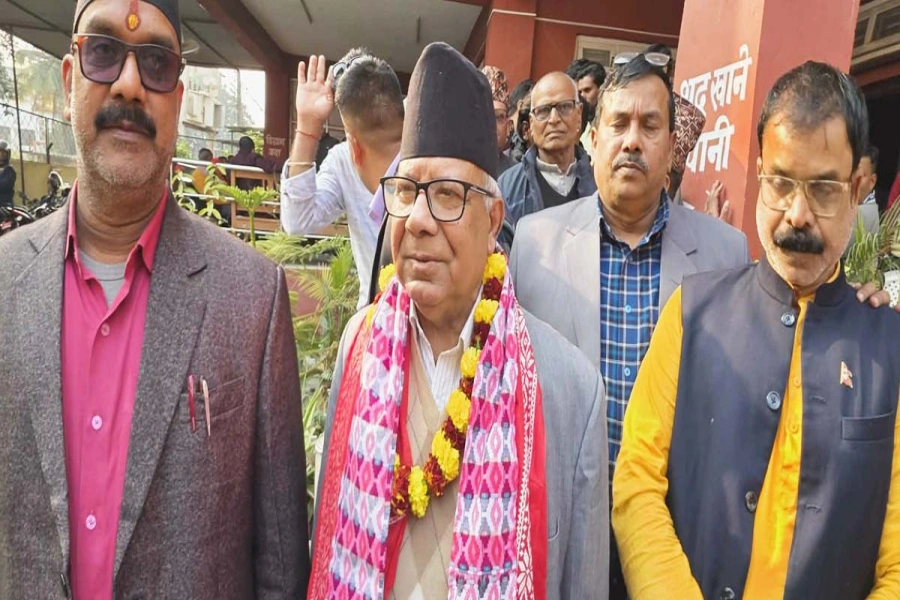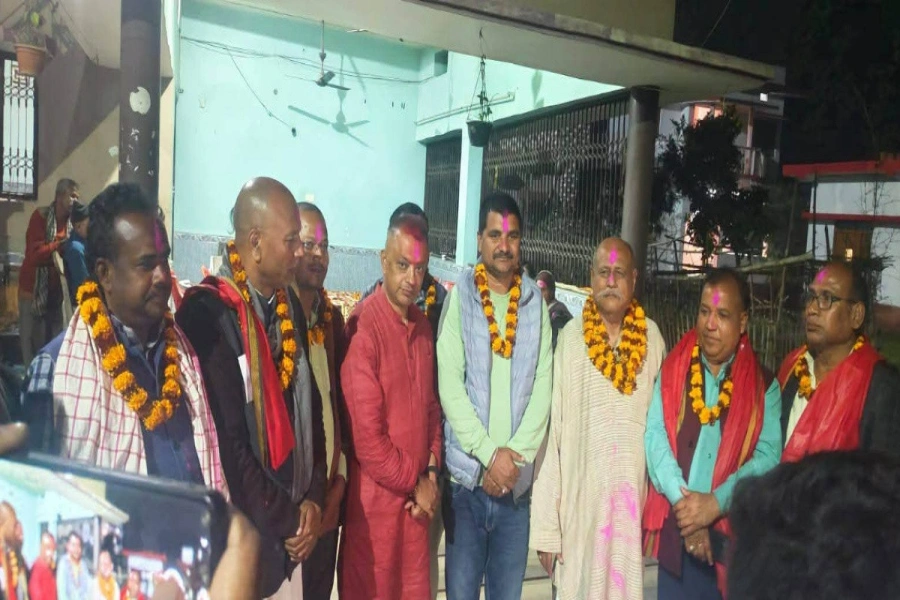We will be mere statistics for the state if we die from coronavirus. So, even when there's no lockdown, stay safe, stay alert and stay healthy.
As the festive season starts in our country, a very serious humanitarian crisis stares us all in our faces. And as always, we the people and the state are ill-prepared to deal with it.
The situation is more serious this year than in the past. Floods and landslides used to destroy our lives around this time of the year in the past as well. Hundreds would die and thousands would become homeless—landless even—in natural disasters aggravated all the more by mindless development activities conducted with utter disregard for environmental fragility.
For the survivors of this year's natural disasters turned all the more disastrous due to the human 'endeavor' to tame Mother Nature and the near-absence of the state in the lives of some of the most vulnerable communities in one of the most climatically fragile countries. For thousands pushed into camps with their farmlands turned into beds of sand and landslide debris, problems are all too many. Food and potable water are in short supply, while miseries are aplenty. Amid this, vector-borne diseases may put the lives of survivors, especially children and senior citizens at grave risk.
As of this writing, around 200 people have already died and more than 100 suffered injuries in the monsoon havoc that has displaced hundreds of people in the country. As it rains cats and dogs and the pandemic looms, the state is too far away—and far too busy—and so is any sort of relief. All it can do is ask its people to stay alert. In fact, the state has become that student, who almost always remains absent from class because he has not done his homework. The only difference here is that the people have to suffer because the state has not done its homework, whether it's in mitigating the effect of disasters or a raging pandemic.
In a grim scenario like this, getting a few packets of noodles and bottles of water is like winning a state lottery for disaster-hit people. The sight of helicopters carrying dignitaries like ministers and lawmakers hovering high over makeshift camps may be rare this time around because of ongoing plots and counter-plots for change of guard and for status quo.
Post-Earthquake Livestock Management

That's not the only reason why these people may not be reaching out to affected communities though. Amid the threat of the coronavirus pandemic, forget about the possibility of these dignitaries coming to meet you, asking how you all were doing and taking sweet selfies/we-fies with you guys and your children for the sake of 'good times'. Why would they come to you anyway? After all, this is no election time.
At a time when it's unclear as to how the pandemic situation will unfold, the government has decided to lift the lockdown imposed to control the pandemic. A lockdown is generally imposed to buy time for scaling up preparedness in pandemic situations. The idea is to widen screenings and ensure that the disease does not spread in unaffected areas. A lockdown becomes effective only when the state makes arrangements for the survival of the people, who lose their livelihoods because of the drastic measure, by providing for them till the situation returns to normal.
But our government seems to have first taken the lockdown as the silver bullet. And now, it's taking lifting of the lockdown as the same. Both approaches are wrong.
Lifting of the lockdown means allowing people to travel from one place to another in the festive season using public transport. The government also plans to resume domestic and international flights from August 17 by following what it calls ‘all health and safety protocols'.
But following these protocols is easier said than done, especially in a country where the status of culture of safety leaves much to be desired.
It needs no expert to say that this move will help the dreaded virus make inroads into unaffected areas, increasing the threat of community spread all across the country in the worst-case scenario. It should be noted that a recent study of wastewater samples taken from different parts of the valley found traces of the virus, giving indications of community spread of the virus. Lifting of the lockdown may put the whole of Nepal's population at increased risk, given that health and safety measures remain largely on paper in this part of the globe, whether it's in normal times or in pandemic situations.
With our overwhelmed public health system almost non-functional even in normal times, it's not that hard to imagine the situation we will be in.
At this point, it will be contextual to draw from media reports and point out crises that different countries are facing because of this pandemic as of this writing.
In the United States, the land of milk and honey with a robust political system, the number of coronavirus cases has already crossed four million.
South Korea, Asia's largest economy, is facing a serious economic depression with exports plummeting amid the pandemic. Notably, this country exports 40 percent of its products. Australia is grappling with the most serious economic depression after the economic depression of the 1930s.
Closer home, the world’s largest democracy is not doing well when it comes to dealing with the pandemic.
Amid increasing cases of transmission and deaths (globally, as of 23 July 2020, there have been 15,012,731 confirmed cases of COVID-19, including 619,150 deaths, reported to WHO), taking chances against this virus strain and going for home remedies to keep it at bay may not be the best option. In a time of crisis like this, the least our political leaders, especially those from the ruling party, can do is stop floating home remedies, whose efficacy in fighting the virus strain has not been proven as yet. These leaders should listen to the experts and encourage the public to follow suit. Above all, they should focus on delivering good governance and controlling corruption and make sure that the government does not act like yet another disaster in times of a serious crisis.
Despite lifting or gradual easing of the lockdown, we all would do well to not throw caution in the wind.
Remember this: We will be mere statistics for the state if we die from coronavirus, while for our near and dear ones, our death will be colossal. So, even when there's no lockdown, stay safe, stay alert and stay healthy.












_20200814192758.jpg)
























